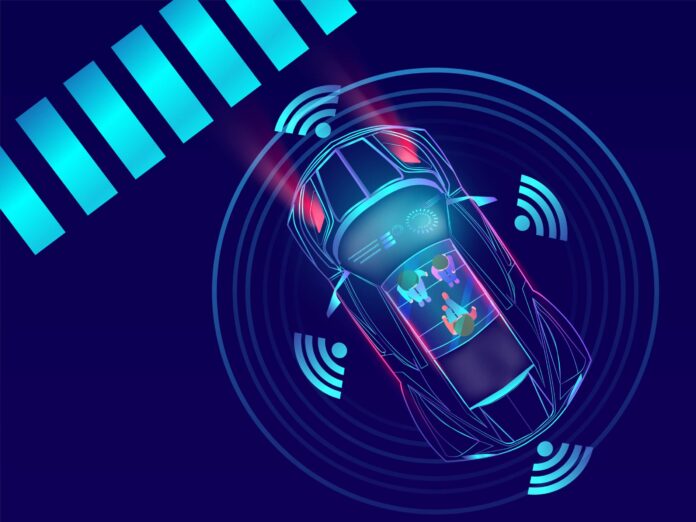BlueWeave Consulting, a leading strategic consulting and market research firm, in its recent study, estimated India automotive sensors market size at USD 1,570.11 million in 2022. During the forecast period between 2023 and 2029, BlueWeave expects India automotive sensors market size to grow at a significant CAGR of 14.17% reaching a value of USD 3,940.39 million by 2029. Major growth factors of India automotive sensors market include increasing focus on passenger, pedestrian, and vehicle safety in the country, high disposable income in India, the entry of foreign auto manufacturers increasing adoption of autonomous vehicles and growing government regulations on emission control. The government has mandated a few features, such as Reverse Parking Assist, which could aid market growth. Similarly, rising usage of ADAS systems in both passenger and commercial vehicles is expected to propel the market. Besides, the entrance of electric vehicles will drastically alter the number and deployment of pressure sensors and magnetic sensors in the automobile in the long run, accelerating the India automotive sensors market in the approaching years. Fewer pressure sensors are required in an electrified vehicle, but more magnetic sensors are required to monitor the battery and enable various positioning and detection of moving elements. Automobile sensors for early applications, such as fewer emissions, higher fuel economy, and on-board diagnostics, currently dominate the power system applications of the automotive system. Such factors are expected to boost the expansion of India automotive sensors market during the period in analysis. However, long distance to travel is anticipated to restrain the overall market growth.
India Automotive Sensors Market– Overview
Automotive sensors, which are present in vehicles, are the essential components of the perception layer. The number of sensors in an automobile directly impacts its intelligence level. There are two types of automotive sensors: environmental monitoring and body perception. Body sensing sensors are used to gather information about the body, such as tire pressure, oil pressure, and vehicle speed. Ultrasonic radar is mostly utilized for backup radar and short-distance obstacle monitoring in automatic parking, while cameras, millimeter-wave radars, and LiDAR (light detection and raging) are widely used in other ADAS (Advanced Driver Assistance Systems) operations. The arrival of electric vehicles would drastically alter the quantity and distribution of pressure and magnetic sensors within the vehicle, influencing the automotive sensor industry. The Indian government has enacted legislation requiring the installation of certain mandatory automotive sensors, which will encourage increased demand and usage for automotive sensors across all vehicle segments in the Indian automotive market. North India is predicted to account for the lion’s share by 2027, owing to rising population and economic levels, which have resulted in greater demand for automobiles. Furthermore, the growing consumer preference for comfort, safety, and elegance will drive the India automotive sensor market.
Sample Request @ https://www.blueweaveconsulting.com/report/india-automotive-sensors-market/report-sample
Impact of COVID-19 on India Automotive Sensors Market
COVID-19 had a detrimental impact on the automotive sensor market. The cessation of manufacturing and end-of-life sector operations harmed the automotive sensors market. The pandemic harmed the industry’s overall growth. The COVID-19 pandemic in 2020 and early 2021 prompted countries to impose stringent lockdown measures, complicating automotive sensor import and export activity. As a result, the growth of the Saudi Arabia automotive sensors market is hampered. However, following the pandemic, the country’s sales volume of passenger automobiles and hybrid electric vehicles grew due to the country’s relaxation of COVID-19-related restrictions. As a result, the Saudi Arabia automotive sensors market is predicted to overcome all damages caused during the forecast period and to increase at a rapid pace.
India Automotive Sensors Market – By Sensor Type
Based on sensor type, India automotive sensors market is divided into Temperature Sensors, Pressure Sensors, Oxygen Sensors, NOx Sensors, Position Sensors, Speed Sensors, Inertial Sensors, and Image Sensors segments. The position sensor segment held the highest market share in 2022, due to a rising demand for premium vehicles and increased desire for greater driver convenience. The need to ensure the proper operation and safety of all automobile components is driving rising demand for position sensors. Continuous improvements in the automotive sector, as well as the release of updated position sensors, may drive increasing demand for position sensors in India. Followed by, temperature sensors are predicted to be the second most dominant segment which aid in detecting transmission fluid temperature, exhaust gas temperature, engine oil temperature, fuel temperature, and coolant water.
Competitive Landscape
Major players operating in India automotive sensors market include Autoliv Inc, Robert Bosch, Continental Ag, DENSO Corporation, Delphi Automotive Company, Infineon Technologies AG, NXP Semiconductor, Sensata Technologies, STMicroelectronics N.V, and Valeo. To further enhance their market share, these companies employ various strategies, including mergers and acquisitions, partnerships, joint ventures, license agreements, and new product launches.
Contact Us:
BlueWeave Research Blog
Phone No: +1 866 658 6826
Email: info@blueweaveconsulting.com














